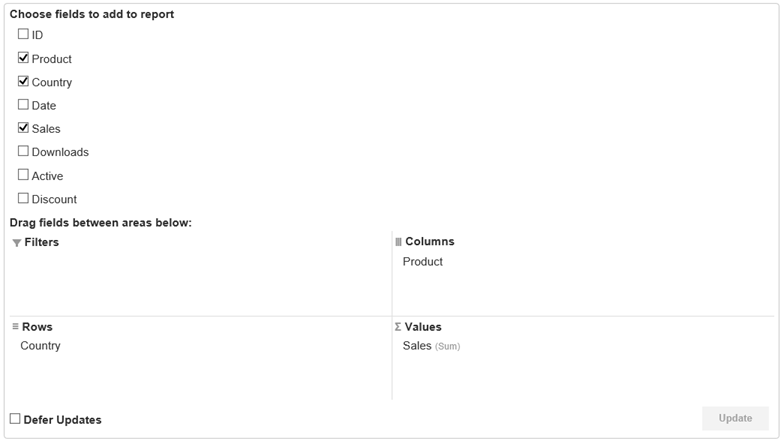- Getting Started
- Configuring your MVC Application
- Adding NuGet Packages to your App
- Adding Controls
- Client-Side Support
- Working with Controls
- Globalization
- Styling
- ASP.NET MVC Samples
- ReleaseHistory
Pivot Panel
PivotPanel component is designed to provide an Excel-like drag-and-drop user interface that enables you to define custom views of the data. The control displays a list containing all the fields that exist in the data. Users can drag-and-drop these fields to lists that represent the row and column dimensions of the output table, the values summarized in the output data cells, and the fields used for filtering the data. When users modifies all these aspects of the view definition, the engine automatically updates the output data summary. Additionally, PivotPanel also manages the deferred update state of the engine.

When you are working with PivotPanel, the core of this component is a powerful data engine that is responsible for fetching raw data from the data source as per the criteria selected by the user. The criteria for data selection is determined by the fields enlisted in the various lists appearing on the panel. OLAP features an open architecture. It can accept any regular collection as data, including tables and generic lists; and add LINQ enumerations to summarize the data and produce a regular data table or chart as output. For more information about PivotPanel, see QuickStart:Add Data to OLAP topic.


